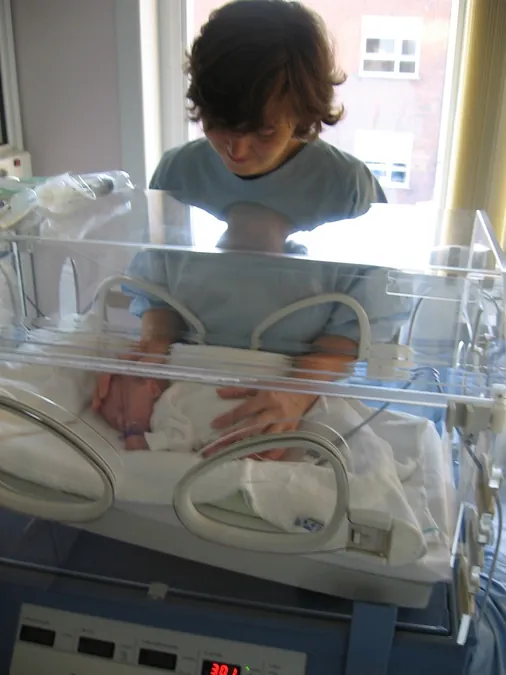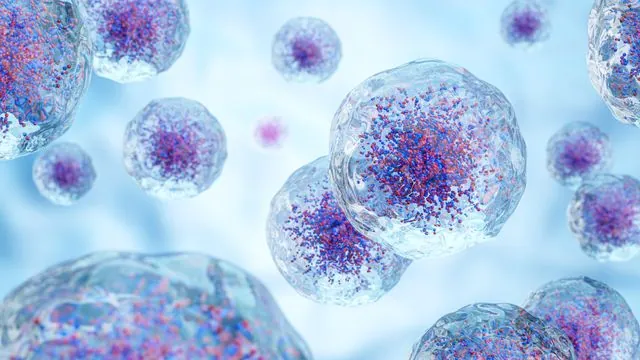
Revolutionary Breakthrough: Australian Study Offers Hope for Extremely Preterm Infants with Cord Blood Therapy
2024-12-16
Author: William
Groundbreaking Advancement in Neonatal Medicine
In a groundbreaking advancement in neonatal medicine, researchers at Monash Children's Hospital in Australia have unveiled a pioneering method that could significantly improve the survival and health outcomes of extremely preterm infants. This innovative study has shown that administering umbilical cord blood cells from the infant itself may serve as a vital safeguard against brain injuries, which are a common risk for these fragile newborns.
Collaborative Research Initiative
The collaborative research initiative, undertaken by Monash Health's Monash Children's Hospital, The School of Clinical Sciences at Monash University, and Hudson Institute of Medical Research, has been proven both feasible and safe for extremely preterm infants — those born before 28 weeks of gestation. This category of infants, often weighing less than a pound, faces an alarming risk of severe brain injuries that can lead to long-term disabilities, including cerebral palsy.
Published Research and Study Goals
Published in the esteemed journal eBioMedicine, this study highlights a pressing need, as over 3,000 infants are born before 32 weeks’ gestation in Australia each year. The Cord-Safe Study aimed to collect and analyze cord blood from babies born at the threshold of viability, overcoming significant hurdles such as limited blood volume and challenging delivery conditions.
Trial Success and Safety Findings
Remarkably, the research team succeeded in collecting and processing cord blood cells from around 70% of the infants involved in the trial. Notably, 23 extremely preterm infants received these cord blood-derived cell infusions without any serious side effects, demonstrating that the process is not only safe but tolerable for this vulnerable population.
Dr. Lindsay Zhou's Remarks
Dr. Lindsay Zhou, the lead neonatologist of the study, remarked, “This research represents an exciting development in neonatal care. For the first time, we're exploring how a baby's own cord blood cells might be used therapeutically in extremely preterm infants, offering a potential treatment option where previously there were limited alternatives.”
Neuroprotective Properties of Cord Blood
The encouraging findings of this Phase I clinical trial build upon extensive preclinical evidence that suggests umbilical cord blood-derived cells possess neuroprotective properties beneficial for the developing brain. These cells have exhibited various positive effects, including anti-inflammatory and immunomodulatory mechanisms that could shield the delicate neural development of preterm infants.
Future Prospects and International Trials
Looking to the future, the success of this pilot study opens the door for more extensive international trials aimed at validating these methods further. As interest in cell therapies for neuroprotection and brain regeneration in young children grows, this research positions Australia at the forefront of pioneering advances in neonatal care.
Associate Professor Atul Malhotra's Vision
Associate Professor Atul Malhotra, the leading researcher of the project, emphasized the potential this breakthrough holds for reshaping neonatal care. "The Cord-Safe Study represents a crucial step in exploring how we can use a baby's own cord blood to improve outcomes," he stated. "This study sets the foundation for future international randomized controlled trials, showcasing Australia’s leadership in developing innovative treatments that could change the landscape of neonatal care for generations."
Conclusion and Hope for Parents
As the world watches close to see how this revolutionary approach unfolds, parents and caregivers of extremely preterm infants can hold onto a newfound glimmer of hope for safer, more effective treatment options in the challenging neonatal landscape.









 Brasil (PT)
Brasil (PT)
 Canada (EN)
Canada (EN)
 Chile (ES)
Chile (ES)
 España (ES)
España (ES)
 France (FR)
France (FR)
 Hong Kong (EN)
Hong Kong (EN)
 Italia (IT)
Italia (IT)
 日本 (JA)
日本 (JA)
 Magyarország (HU)
Magyarország (HU)
 Norge (NO)
Norge (NO)
 Polska (PL)
Polska (PL)
 Schweiz (DE)
Schweiz (DE)
 Singapore (EN)
Singapore (EN)
 Sverige (SV)
Sverige (SV)
 Suomi (FI)
Suomi (FI)
 Türkiye (TR)
Türkiye (TR)